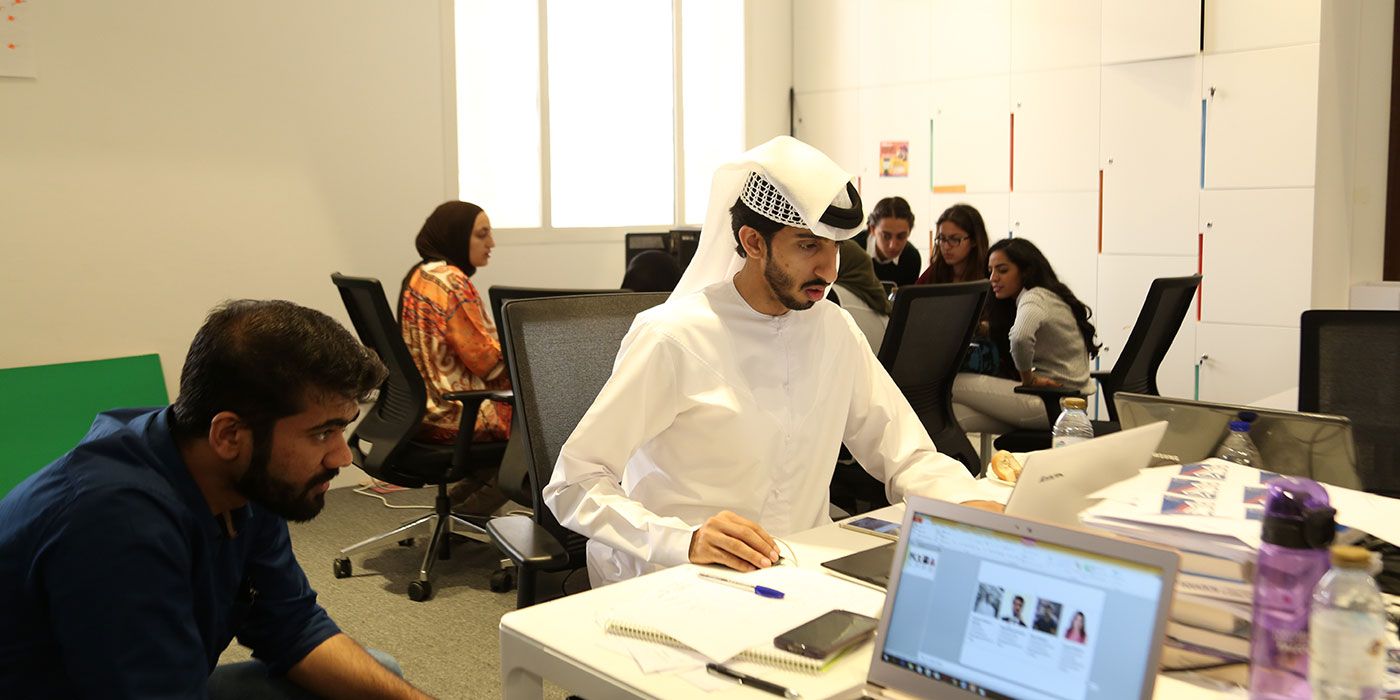The Studentpreneur: Coping with Two Full-time Jobs
By Naila Tariq
“Being a student is a full time job.”
This is hardly new information. When you spend an average of eight hours a day, five days a week going to class and then another several hours at home doing assignments and studying for exams, it’s hard for it to feel like anything other than a full time job.
So for the regularly stressed it might seem like insanity to take on another full time job: that of building a business.
Yet that’s exactly what many students have done, with what may seem like surprising success.
Haleema Khawar is developing her events app while pursuing a bachelor’s degree in Finance at the American University of Sharjah.
Fayez Barakji, an AUS Computer Science graduate student, is also the co-founder of the Sheraa-supported CG Interactive, an indie game development company.
The two of them are part of a growing phenomena of students discovering the learning potential of building a business.
And with hubs like Sheraa to help develop their entrepreneurial skills, youth are more keen to kickstart their idea right away, rather than risk being committed to a full-time job after graduation that leaves little time for anything else.
“I truly believe that it is during the college years that we have the liberty to experiment with our careers. By the time I graduate, I either want to have a clear sense of direction, or I want to be well informed about the various markets,” explains Khawar.
So how do they do it? How can you?
Manage Your Time
Yes, you’ve heard this one before. Managing your time is already a necessary part of being a student, but being a student and an entrepreneur takes things to a whole new level.
This does mean less time for socializing, as you switch between writing that essay to writing code for your app or developing your business model. It might sometimes mean later nights than usual.
However, it also means you are devoting your time towards building something from the ground up, developing grit and determination and potentially even a business venture that will last a lifetime.
Prioritize
Before embarking on your business venture, decide what matters most, and what sacrifices you are willing to make. For example, if you want to remain an A-student, then naturally you’ll need to devote more time to your studies than to your company.
You can always look at it the way Barakji does, calling it “a fun side project that I can pause whenever necessary.”
Even if it means a slower growth of your business, you will still be graduating with way more than you would have if you hadn’t done anything at all.
Set Small, Realistic Goals
You need to remember who you are and where you’re at. As a busy student with limited resources, you’re not going to become the next Facebook or Air Arabia overnight. So while you should be ambitious, keep your goals realistic so that they’re easier to accomplish and not overwhelming.
Get Help
Speaking of limited resources, remember that you don’t have to go at it alone. Having a business partner and/or a mentor can go a long way towards helping you get through the low points of your journey. It’s also more fun to have someone to celebrate your successes with.
If you’re not sure where to find the help you need, pay Sheraa a visit. We host networking events so you can build the right team, hold workshops to help build your entrepreneurial skill set, and provide mentorship to keep you on the right track.
Trust the Process
Lastly, don’t get discouraged too quickly if you hit a roadblock. This is a natural part of any entrepreneurial journey, student or not. Just breathe, reevaluate, and forge ahead.
Best case scenario, you graduate with a successful business.
Worst case, your business fails, but you’ll still know what not to do for next time. And trust me, there will be a next time, because once you get bitten by the entrepreneurial bug, you’re in it for life.
As Khawar advises, “While you have all the luxury and time to do something for yourself, take the opportunity, and start creating value for yourself.”
SEE ALL STORIES
